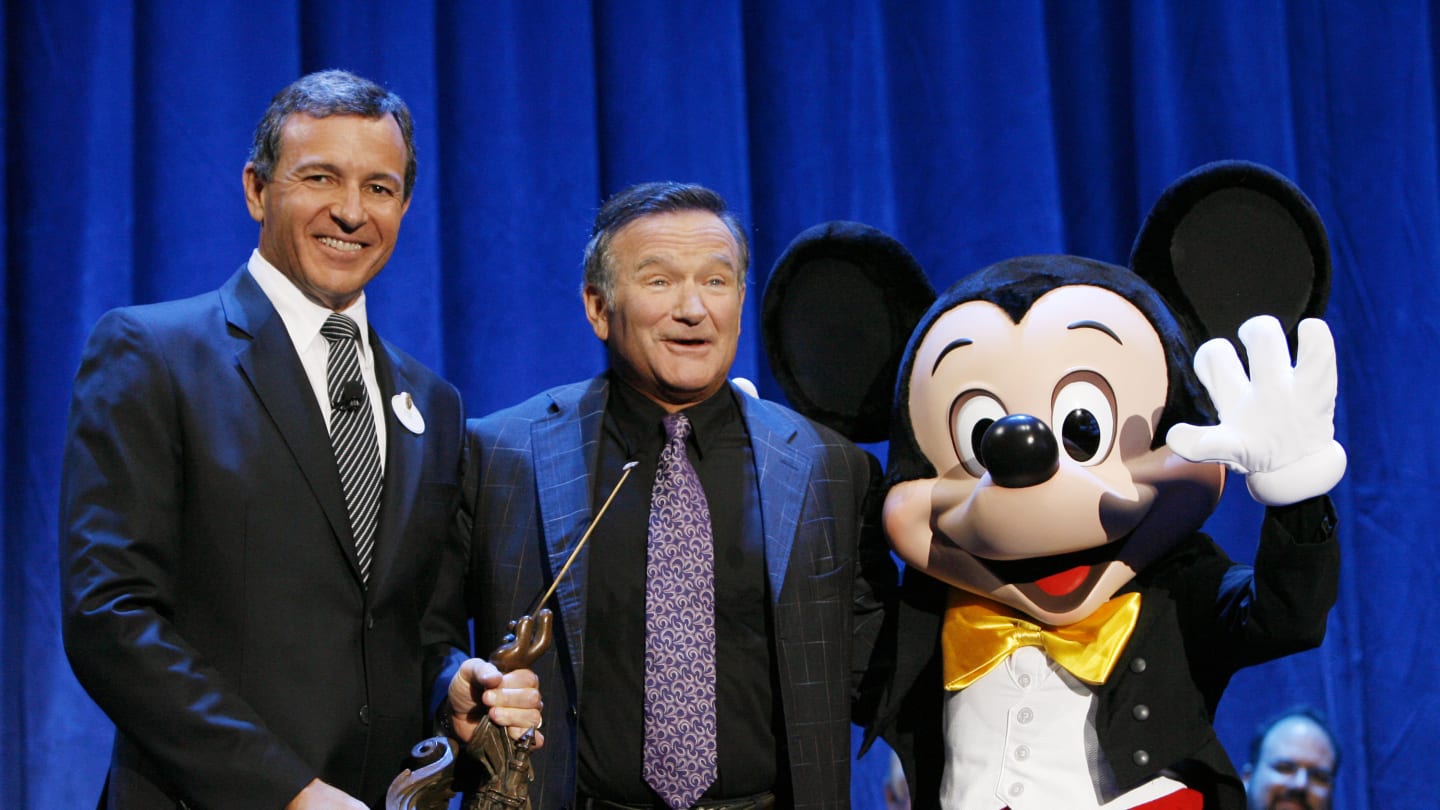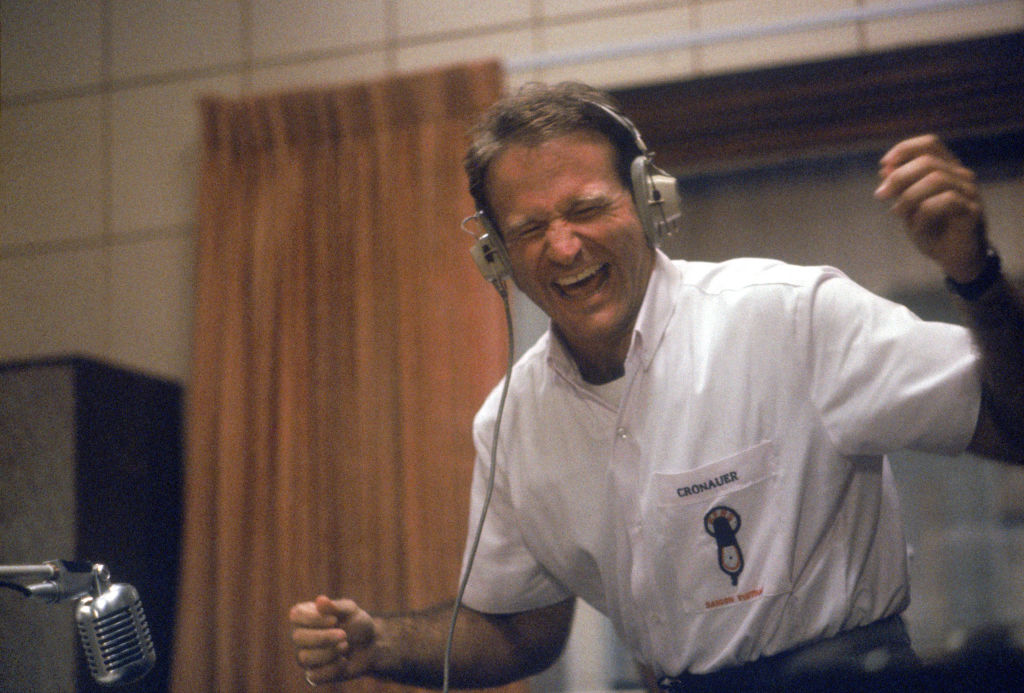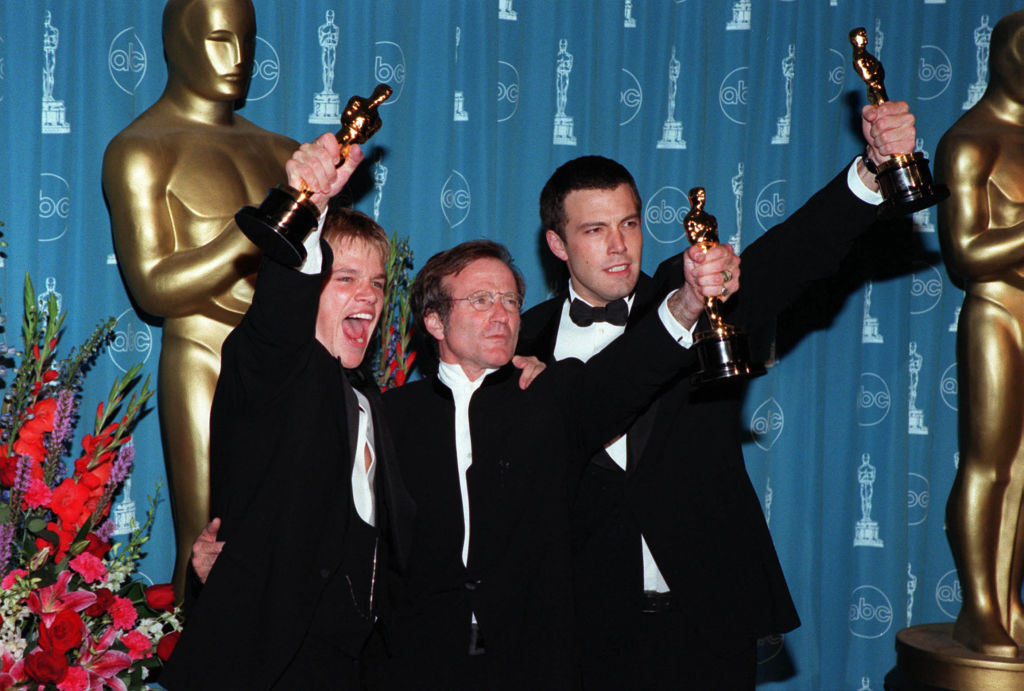
As I delve into the captivating saga of Robin Williams and his enchanting journey with Disney, I am struck by the sheer magnitude of talent and charisma that this extraordinary man possessed. His voice, even in its “stilted” form, was unlike any other, a symphony that could effortlessly transport us to realms of fantasy and whimsy.
For ten years now, we’ve been without the brilliant comedian, Robin Williams. Yet, as we recall his remarkable life, it’s essential not to forget his exceptional bond with Disney, a connection that continues to captivate us!
On August 11, 2014, news spread that Robin Williams had passed away, causing a massive wave of shock. It wasn’t just his young age of 63 or the circumstances surrounding his death that shocked people. It was the realization that a man who seemed overflowing with life and vitality could die at all. Among those who appeared invincible, it was Williams who stood out as someone who might never die.
In a way that no one else has achieved, Robin Williams personified the raw, unpredictable essence of humor. Whether on a talk show or in public, this man had an uncanny knack for delivering witty, off-the-wall remarks that could reduce anyone to laughter. His career was nothing short of extraordinary, but it’s essential to remember that Disney played a significant role in shaping him into the icon we know and why his death was so profoundly felt.
The early years
Robin Williams made a dynamic entrance in the late 1970s, with stand-up comedy gaining popularity due to cable television. His unconventional humor and performances attracted attention, eventually landing him the role of Mork, an alien character, on Gary Marshall’s popular TV show Happy Days. This role catapulted him to stardom, as audiences adored his antics and improvised lines that were unique to him.
In 1982, the opportunity for a serious role in “The World According to Garp” surprised many and showcased Williams’ acting skills. Despite other films like “Club Paradise,” his career seemed to be at a standstill due to personal struggles with substance abuse. However, fortune favored him when Disney offered him a chance.
Good Morning to fame

In the 1980s midway through, Disney ventured into more mature content under Touchstone Pictures. They achieved significant success with films like “Down and Out in Beverly Hills” starring Richard Dreyfus and Nick Nolte, followed by “Ruthless People” featuring Bette Middler. When Williams received the script for “Good Morning Vietnam,” he joked that Disney’s casting directors must frequent the Betty Ford Clinic.
Good Day’s script perfectly suited Williams, placing him as a comedic military DJ during the Vietnam War, who eventually finds success. Most of the film’s dialogue and impressions were improvised by Williams, giving him full creative freedom. This movie not only became a massive box office sensation but also earned Williams a Golden Globe award and an Academy Award nomination, catapulting him to A-list Hollywood stardom.
As a devoted admirer, I continued my journey with Robin Williams in the poignant masterpiece, “Dead Poets Society,” following up from his comedic successes. In this role, he subtly shifted gears, embodying an inspiring English professor at a prestigious boys’ school, delivering a more dramatic performance that resonated deeply with audiences. This heartfelt portrayal brought him another well-deserved Oscar nomination and solidified his status as a versatile actor.
Then came the role that, to many, may be the ultimate showcase for Robin Williams on film
Unleashing the Genie
Originally, it was planned that Williams would voice a character named Breaker, a dolphin, in the movie The Little Mermaid. Unfortunately, the role was removed during script revisions, causing a delay in significant opportunities for him.
Prior to 1992’s Aladdin, animated films typically didn’t feature top-tier Hollywood stars. However, the producers believed that Robin Williams would be a suitable fit for the Genie. They hadn’t anticipated that he would be as unbridled as he was, delivering countless improvised jokes, impressions, and other elements that didn’t align with the film’s time period but were side-splittingly funny. Subsequent DVD and Blu-ray releases of the movie reveal more of Williams’ improvisations that were initially omitted, and the animators took great pleasure in bringing his voice to life on screen.
The film, indeed, became one of Disney’s greatest hits, earning massive box office revenues, and Williams’s acting was the standout aspect. Regrettably, this success sparked a bitter dispute. The point of contention was that instead of demanding a large salary, Williams accepted the role for the Screen Actors Guild scale (approximately $75,000) under two conditions: his name would not be featured in promotions and the Genie character would not dominate more than 25% of promotional content. This was due to an upcoming movie of his, Toys, scheduled for release a month after Aladdin, and he wished to avoid direct competition with himself. Moreover, he felt his voice was his personal asset.
Some might contend that it was somewhat unexpected due to the fact that viewers, upon watching trailers, would immediately identify Robin Williams’ voice. Nevertheless, Disney altered the agreement by focusing more on Genie in promotional materials and highlighting Williams’ role, not to forget the merchandising. This strategy, among other factors, escalated a rift between Williams and Disney, resulting in the official “Making of Aladdin” book omitting Williams’ name entirely.
It appears that most of this information points to Jeffrey Katzenberg as the original source for the Genie’s voice in the animated film Aladdin. Given that, it’s clear Robin Williams didn’t reprise his role as the Genie in the direct-to-video sequel The Return of Jafar. This changed after Katzenberg left Disney in 1994 and Joe Roth took over. Roth had produced Williams’ successful film Mrs. Doubtfire at Fox, and the two were on good terms. To smooth things over, Roth arranged for Disney to publicly apologize to Williams. With this gesture, Williams agreed first to a Hollywood Pictures film (Jack) and later voiced the Genie in Aladdin and the King of Thieves, earning more than his usual compensation for these projects.
The theme parks
Overlooked in all this is Williams’ great work at the Disney theme parks. When the Disney-MGM Studios opened, the Animation building was a highlight. The timing was interesting as this was just months before The Little Mermaid ignited a new era of Disney animation. The opening movie, “Back to Neverland” had veteran newsman Walter Cronkite at the Studios and enlisting Williams as a tourist to show how the animation process worked.
1. Williams thoroughly enjoyed portraying a character in Peter Pan, particularly when butting heads with Captain Hook. His tour of the creative workstations showcased mini-movies detailing each station’s role and displayed his signature wit. The film endured through transitions within the animation team until it ultimately closed in 2004. Interestingly enough, in 1991 Williams would go on to play the adult Peter Pan in Steven Spielberg’s Hook.
Back in 1992, Euro Disney welcomed me as the Timekeeper in an attraction that bore my namesake. A few years later, in 1995, I graced the Magic Kingdom at Disney World with my unique voiceover for the same enchanting experience. Some might find my performance a tad unnatural, but let me clarify: it wasn’t a live performance; instead, it was snippets from my initial script readings.
A new high before another breakup
In 1997, with things appearing to settle down, Williams accepted another leading role in Disney’s film “Flubber,” a remake of the original “The Absent-Minded Professor.” In this comedy, he portrayed a clumsy professor who invents a unique rubber compound, leading to various comedic situations. Although it received mixed reviews, the movie grossed $178 million and was a profitable venture for Williams.
In the same year, Williams found himself in the spotlight, starring in the movie “Good Will Hunting,” which was produced by Disney-owned Miramax. This film catapulted both Ben Affleck and Matt Damon to stardom, and Williams delivered an outstanding dramatic performance as the professor attempting to guide young genius Damon through his personal struggles. The movie was a massive success that year, ultimately securing Williams his long-awaited Oscar for Best Supporting Actor.

Regrettably, the partnership between Williams and Disney encountered another setback during the release of the 1999 film, “Bicentennial Man.” This intriguing science fiction movie featured Robin Williams as Andrew, an android who developed his own identity and fought for recognition as a person. The film showed a progressive transformation of Williams’ character into something more human. Unfortunately, it was met with mixed reviews by critics and earned just $87 million against a production cost of $100 million.
In simpler terms, William argued that Disney was responsible for the film’s poor marketing and certain budget-related decisions that removed key scenes he believed would have improved the movie. This disagreement resulted in a prolonged hiatus, extending to the point where the 2004 Aladdin DVD release no longer incorporated any of Williams’ input.
It’s great news that both parties reunited, enabling Williams to be honored as a Disney Legend in 2009. Additionally, he starred in one final film produced by the studio, the 2009 comedy “Old Dogs” alongside John Travolta, which surprisingly became a hit at the box office.
Williams’ legacy with Disney
Like so many, Disney was stunned by Williams’ death, and both Disney Channel and ABC Family aired Aladdin numerous times. The Broadway production of Aladdin had the cast and audience singing “Friend Like Me” in tribute to him. The recent short Once Upon a Studio not only has unused voice work by Williams as the Genie but also a cameo of him as his Back to Neverland Lost Boy.
It’s unfortunate that the issues between Williams and Disney didn’t result in more joint projects. Nevertheless, it’s impressive how Disney played a significant role in some of Williams’ greatest successes, propelling his career to unprecedented heights, particularly one iconic role that will forever be etched in memory.
In simpler terms, as long as people keep remembering someone, they never truly disappear. If that’s true, Robin Williams will continue to live on, thanks to his work with Disney and the character of Genie.
Aladdin, Flubber and Old Dogs streaming on Disney+
Read More
- Clash Royale Best Boss Bandit Champion decks
- Vampire’s Fall 2 redeem codes and how to use them (June 2025)
- M7 Pass Event Guide: All you need to know
- Mobile Legends January 2026 Leaks: Upcoming new skins, heroes, events and more
- Clash Royale Furnace Evolution best decks guide
- Clash of Clans January 2026: List of Weekly Events, Challenges, and Rewards
- Best Arena 9 Decks in Clast Royale
- Brawl Stars Steampunk Brawl Pass brings Steampunk Stu and Steampunk Gale skins, along with chromas
- How “Hey Grok” turned X’s AI into a sexualized free-for-all
- World Eternal Online promo codes and how to use them (September 2025)
2024-08-06 16:27